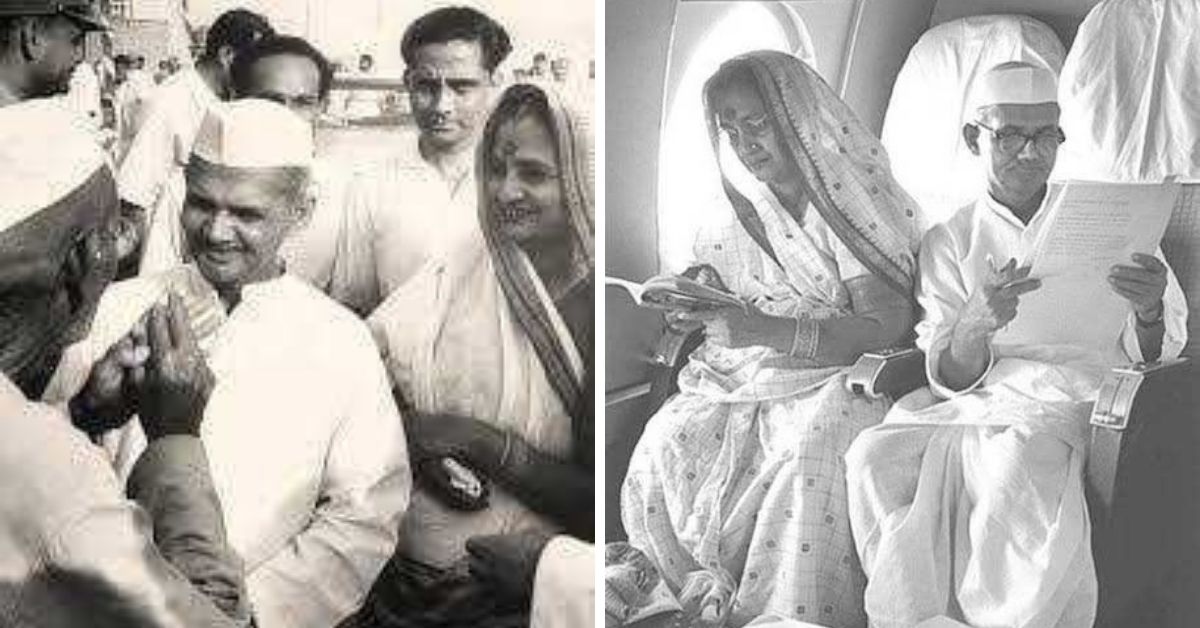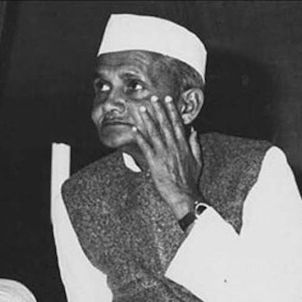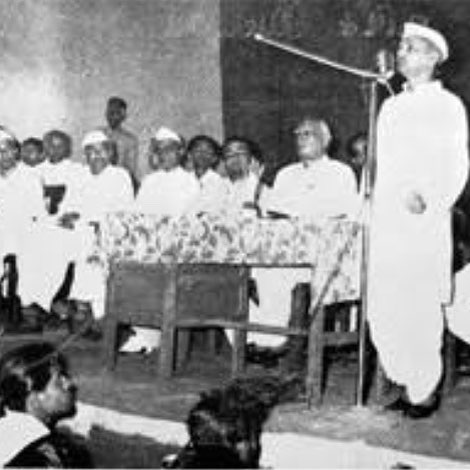The PM Who Took A Loan To Buy A Car: 5 Untold Stories About Lal Bahadur Shastri
The Prime Minister who gave India 'Jai Jawan Jai Kisan', Lal Bahadur Shastri left an indelible mark on the country with his inspiring humility and honesty. On his birth anniversary, we revisit 5 little-known stories from his life.

Amidst tensions of an armed insurgency, communal disharmony, hunger and insufficiency, Lal Bahadur Shashtri emerged as a beacon of hope for India. Through action that backed his slogan Jai jawan jai kisaan, he successfully united the nation in a feeling of oneness and promoted a life of self reliance and hard work.
Though the country’s second prime minister was new to the arena, he understood the ground realities of his people’s life fully well. He had risen from a life of poverty himself, which is arguably why his work during the short stint in the office went on to strike a chord for its authenticity even with generations to come.
Lal Bahadur is best recognised till date for his efforts during the Indo-Pak war of 1965. Apart from this, his focus on tapping into the country’s milk industry and promoting a sense of equality among her people has been remembered as a marker of his strategic approach and gritty character.
In remembrance of his birth anniversary on 2 October, we scoured the pages of history for some lesser known stories that speak equally highly of this freedom fighter’s austere lifestyle:
1.Serving his due time:
It is common knowledge that Shastri was imprisoned many times during the freedom struggle. But political commentator Dr Sandeep Shastri reveals in his book, Lal Bahadur Shastri: Politics and Beyond (2019) that during one of those times, his daughter Suman fell seriously ill.
Shastri was granted parole of 15 days, but unfortunately, his daughter passed away before the end of that period. In a sheer display of fortitude, he was immediately back to serve his time.
The reason he gave for not spending his entire leave away was this; “Parole was given to me to look after my daughter, who is no more, so it is my duty to return to jail.”
In another instance in jail, he found out that his wife was able to save Rs 10 out of their Rs 50 pension paid by the Servants of People’s Society. Noting the income as superfluous, he asked the organisation started by Lala Lajpat Rai to reduce his pension amount and give the Rs 10 thus saved to someone in need of it.
2. Living a life of minimalism:
As a young boy, he would swim back and forth across the Ganges to save money on boat rides to school. This is how Lal Bahadur went about completing his education — with his books tied to the top of his head
3. A man of his word, in life and death:
“There was a demand at home that we should buy a car,” the former prime minister’s son Anil Shastri told The Times of India. A man of limited means, Shastri had only Rs 7,000 in his account for a green Fiat that cost Rs 12,000.
To fulfil the need of the hour, he took a loan of Rs 5,000 from Punjab National Bank with a promise to repay every penny. He died of a contestable cause in Tashkent (1966) before he could do this, but his values were carried forward by his widow, Lalita Shastri. She repaid the entire amount from the pension she received.
4. Leading the country:
India faced two major droughts in ‘65 and ‘66, which led to severe food shortages. After having facilitated the White Revolution a year before, the leader now prompted in-house food production. He urged every family to grow wheat or rice in their houses, and led the movement by growing grain in his own house in Janpath, Delhi.
5. Beginning at home:
This was a time when India used to export most of its wheat. The supplies had been threatened, and a large chunk of the population was on the brink of starvation.
In another iconic movement, Shastri and his family experimented with the idea of skipping a meal to save food. Upon its success, a call for every citizen to skip one meal a week was made on the All India Radio (AIR).
This nationwide fasting, led by example, was what set the stage for the coining of his popular slogan which iterated that farmers of the country were equal in importance to the military men.
Edited by Divya Sethu
All images sourced from Instagram
If you found our stories insightful, informative, or even just enjoyable, we invite you to consider making a voluntary payment to support the work we do at The Better India. Your contribution helps us continue producing quality content that educates, inspires, and drives positive change.
Choose one of the payment options below for your contribution-
By paying for the stories you value, you directly contribute to sustaining our efforts focused on making a difference in the world. Together, let’s ensure that impactful stories continue to be told and shared, enriching lives and communities alike.
Thank you for your support. Here are some frequently asked questions you might find helpful to know why you are contributing?


This story made me
-
97
-
121
-
89
-
167













